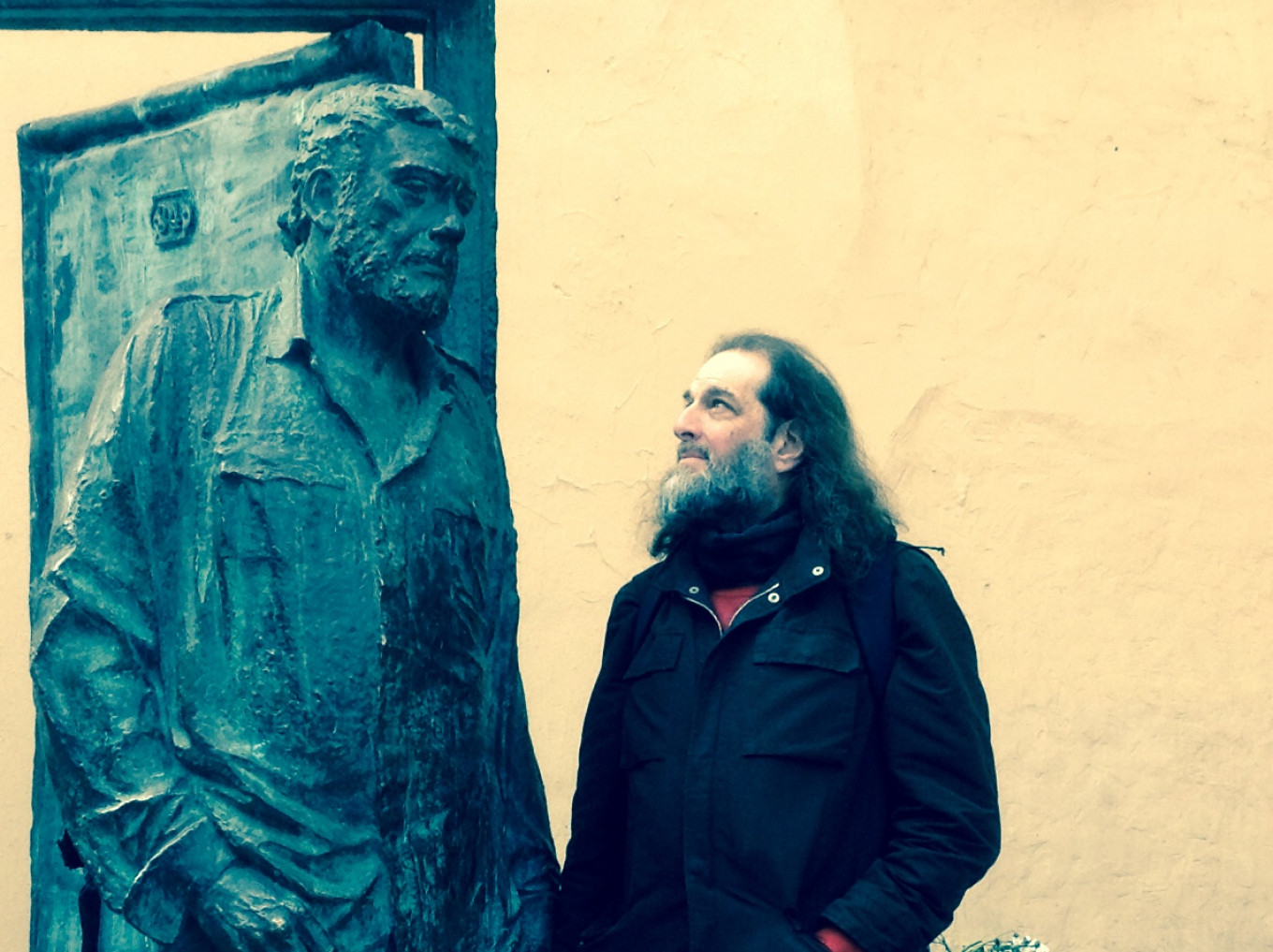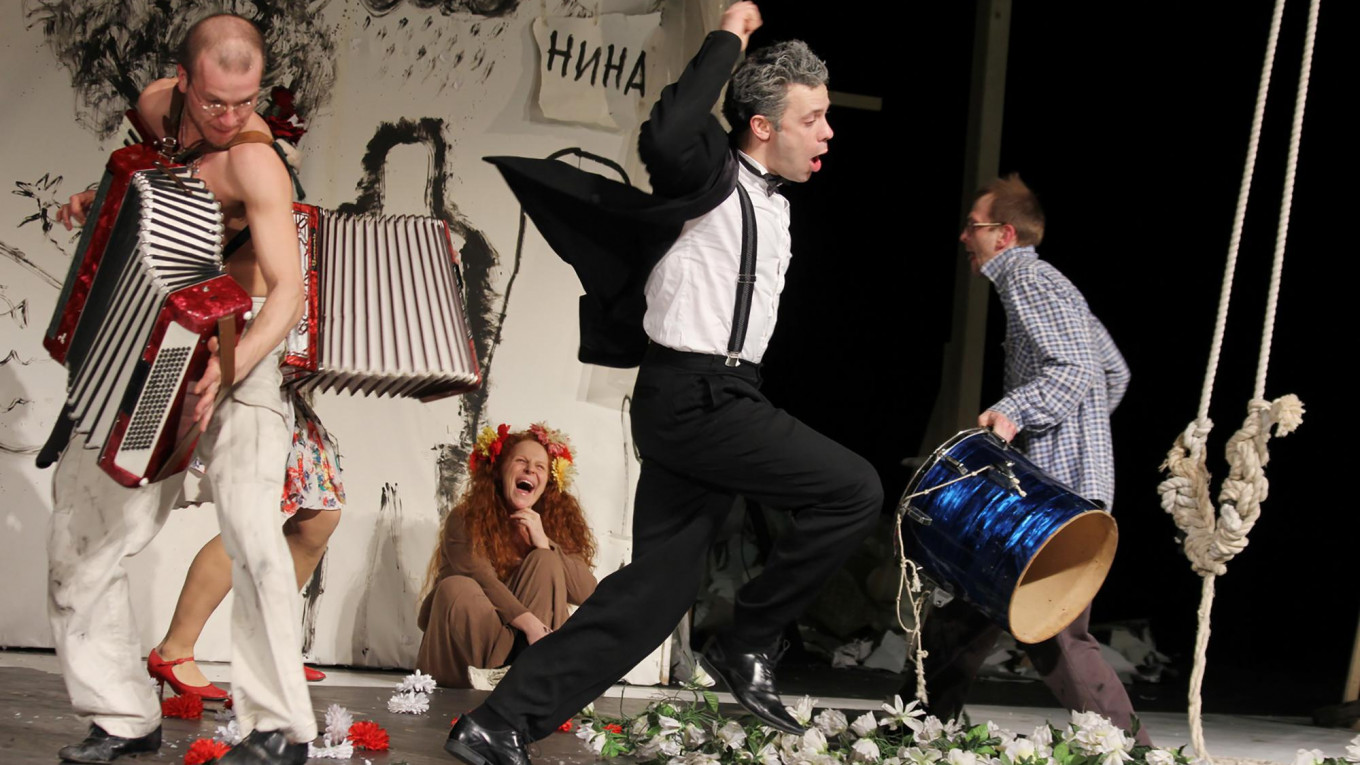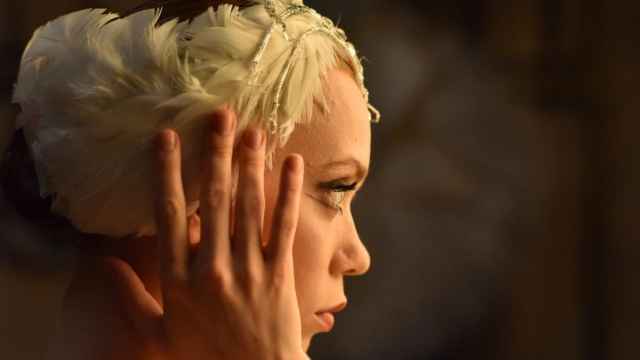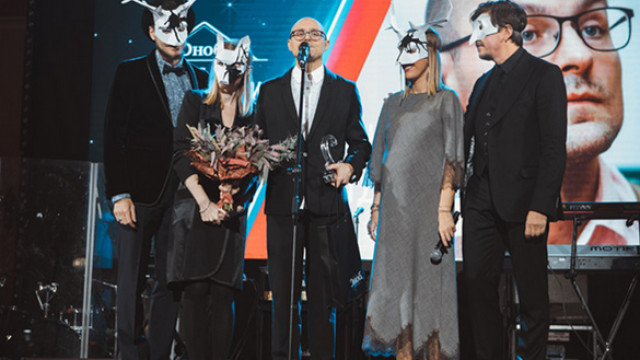A decade ago Eddie Aronoff came to Russia to teach English and ended up becoming a film and theater producer.
He didn’t plan it that way. While he was living in Moscow and teaching English, Aronoff had done many things, but he hadn’t spent much time at the theater. The reason was simple — his Russian, he said, consisted of two phrases: “’I don't need a napkin’ and ‘Where is your husband?’ — neither of which have ever come in handy."
But one of his students invited him to a theatrical performance, and despite his hesitation, he agreed to go. It was a production of Ivan Bunin’s “Mitya’s Love” at the Gogol Center, and even without fluent Russian, Aronoff said he was “blown away.” Soon he was trying to figure out how to share this and other Russian theater productions with a larger, international audience.
When his first idea of organizing foreign tours proved unfeasible, he thought about filming the stage productions. Several theaters were already filming and distributing their plays in Russia, and Aronoff considered subtitling and distributing the versions that already existed. But in the end, he opted for shooting the plays with six cameras and doing a more professional edit. All the productions are filmed while being performed before a live audience, and all are sub-titled in English.
Aronoff’s project, now called Stage Russia, was a great idea, but there was still one problem — funding. "To say I was working on a shoe-string budget is to overestimate the cost of a shoe-string,” he said. But he found that Russian culture “has a wide-open heart when it comes to helping others, particularly foreigners, and singularly, Americans.”

Aronoff launched his first season in the fall of 2016 with four productions from several Moscow theaters, including the Moscow Art Theater, Vakhtangov Theater, and the Moscow Theater Yunogo Zritelya. The films were shown in movie theaters and university campuses in the U.S., U.K., and Ireland as well as in Asia, Australia and South America.
This year Stage Russia begins its season on September 14 with Yury Butusov’s rousing production of Anton Chekhov’s “The Seagull,” filmed at Arkady Raikin’s Satirikon Theater in Moscow. The season finale is the opera “The Drillalians” from the Stanislavsky ElectroTheater, set for release in April 2018. For the Stage Russian version, the 10-hour opera, composed by Dmitry Kurlyandsky and Boris Filanovsky, is a film of the first two episodes.
The season also includes Nikolai Erdman’s 1928 tragicomedy “The Suicide”; Chekhov’s “Uncle Vanya”; and “MacBeth.Kino,” a production of the St. Petersburg State Academic Lensoviet Theater.
For more information about the schedule or how to order films for educational institutions, see www.stagerussia.com.
A Message from The Moscow Times:
Dear readers,
We are facing unprecedented challenges. Russia's Prosecutor General's Office has designated The Moscow Times as an "undesirable" organization, criminalizing our work and putting our staff at risk of prosecution. This follows our earlier unjust labeling as a "foreign agent."
These actions are direct attempts to silence independent journalism in Russia. The authorities claim our work "discredits the decisions of the Russian leadership." We see things differently: we strive to provide accurate, unbiased reporting on Russia.
We, the journalists of The Moscow Times, refuse to be silenced. But to continue our work, we need your help.
Your support, no matter how small, makes a world of difference. If you can, please support us monthly starting from just $2. It's quick to set up, and every contribution makes a significant impact.
By supporting The Moscow Times, you're defending open, independent journalism in the face of repression. Thank you for standing with us.
Remind me later.







